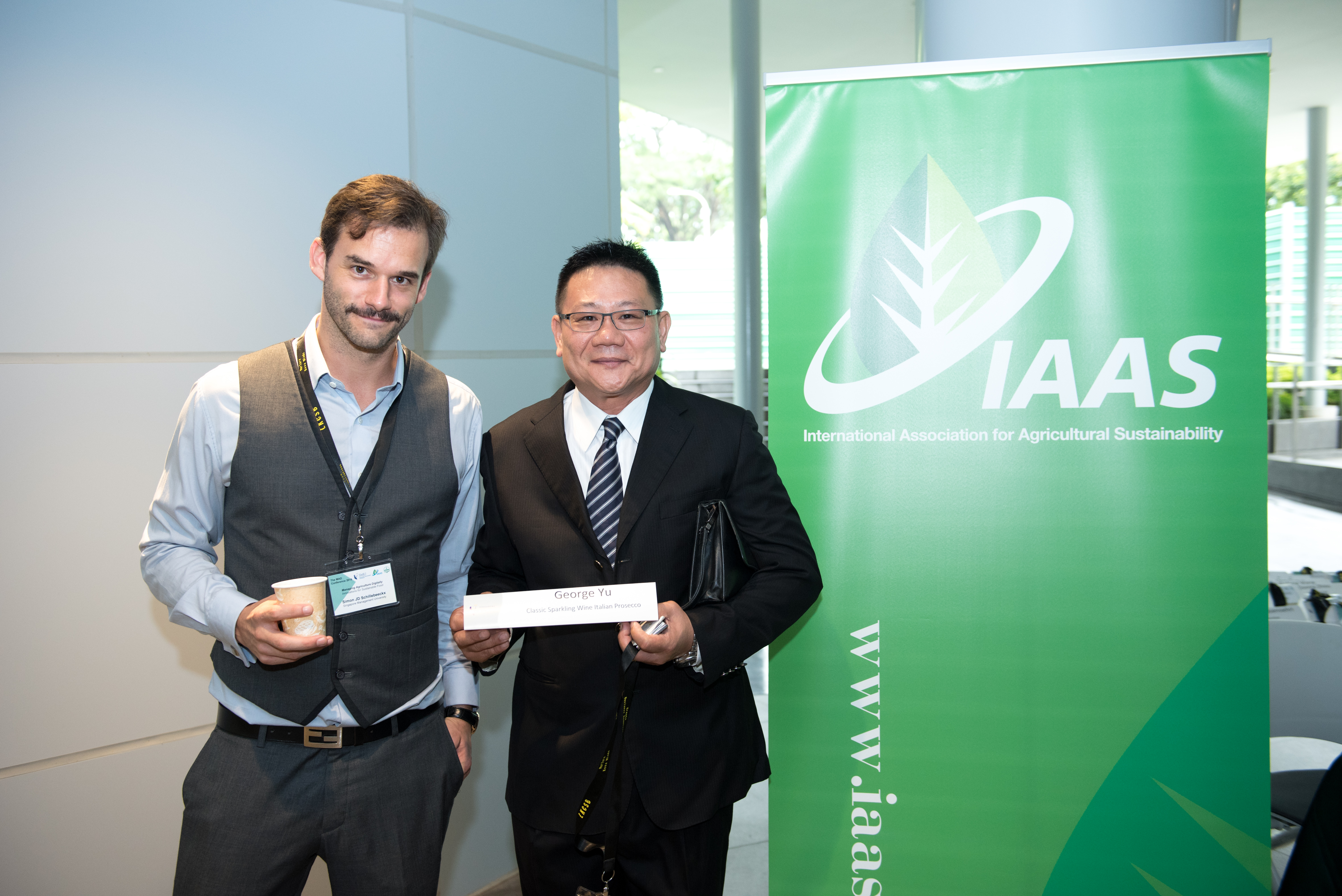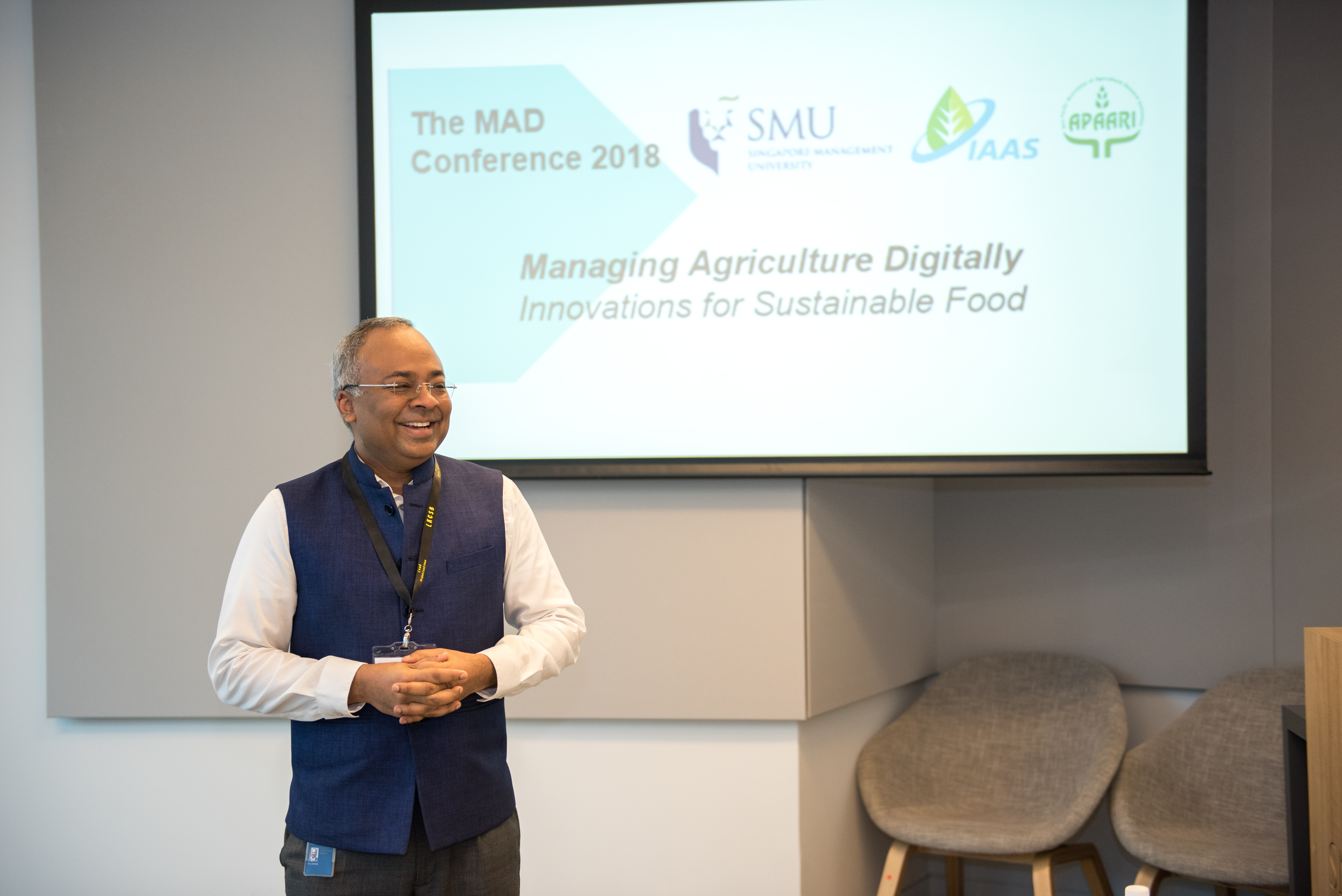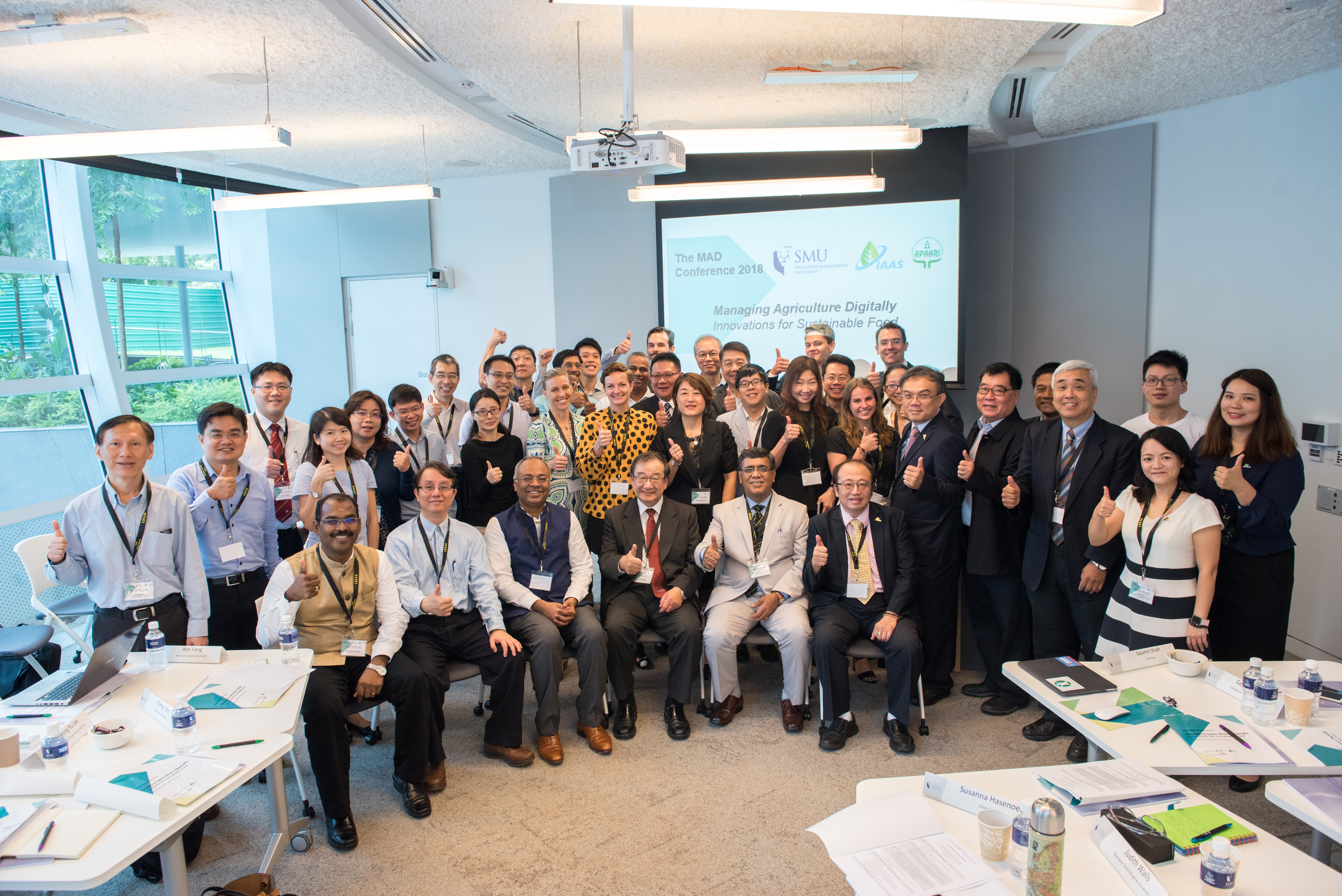
Standfirst: During a one-day conference at SMU, academics and entrepreneurs discussed ways in which technology is impacting agriculture to create a more sustainable future.
Helping to grow mangroves to store carbon, a new way of producing a low-cost protein source and creating a vertical farm in Singapore. These were some of the highlights of the conference on Managing Agriculture Digitally that was held at the Singapore Management University on November 27.
The one-day conference was organised by the Lee Kong Chian School of Business (LKCSB) and the International Association for Agricultural Sustainability (IAAS). The Asia-Pacific Association of Agricultural Research Institutions (APAARI) was a co-organiser.
During his welcome address, LKCSB Dean Prof Gerry George noted that there was a need to look at new business models and to learn from examples of innovation so that companies could put sustainability at the core of their business.
“Fixing agricultural innovation and the overlap with digital business models is one of the most important ways we can contribute over the next decade,” he said.
In a presentation, Dr Simon Schillebeeckx, an Assistant Professor at LKCSB, and Dr Ryan Merrill, a Research Fellow at LKCSB, talked about their efforts to support the regrowing of mangroves in Myanmar through the Global Mangrove Trust.
Mangroves are more efficient at storing carbon than terrestrial forests, they are less expensive to grow, they provide habitats for fish and shellfish and they protect coastlines. The Global Mangrove Trust supports nurseries to regrow mangroves in Myanmar. Apart from helping to sequester carbon, the project provides employment to locals to manage the nurseries as well as replant the seedlings.
The non-profit organisation plans to create a financial platform for peer-to-peer philanthropy and peer-to-peer impact investing, said Dr Merrill, who is the managing director of the trust.
They are looking at using blockchain technology for the financial platform and are planning to rely on satellite data to verify reforestation efforts.
Mr Saumil Shah, the founder of Bangkok-based EnerGaia, shared his vision of leveraging on spirulina cultivation to provide the world with a cheap, non-animal protein source.
Spirulina is blue-green algae that is high in nutrition and minerals. In its dried form, it is between 59 percent and 65 percent protein. Growing spirulina requires less water than other protein sources and produces more oxygen as well.
While the traditional method of growing spirulina commercially involves large, shallow, open-air ponds, EnerGaia has developed a proprietary, low-cost, closed-circuit production system which promises no airborne contamination, reduced water consumption, better productivity, and optimises non-useable land, such as rooftops. The result is a product that is odourless and has a neutral flavour so it can be added to existing foods like pasta, bread, ice cream and chocolate.
In November 2018, the company won a Grand Challenges Explorations grant, funded by the Bill & Melinda Gates Foundation, for their project entitled “Creating spirulina microentrepreneurs to solve malnutrition.”
Their plan is to bring the technology for growing spirulina to rural communities in Central Kalimantan in Indonesia, Madurai in India and southern Bangladesh in 2019. The aim is to “create livelihoods working with older people or women who are not traditional income earners in the community,” said Mr Shah.
The company will provide the farmers with the technical support and the training, and it will a contracted buyer, for the end-product.
The wider vision of the company is to have spirulina farms all around the world producing the protein needed by the world’s growing population.
The conference also saw Mr Veera Sekaran, one of the founders of VertiVegies, sharing his plan to set up a vertical farm in Singapore.
“We want to provide traceable, wholesome and safe foods throughout the year for consumers,” he said.
VertiVegies is planning to build nine six-storey modular structures, 30m by 30m, to grow vegetables in Lim Chu Kang. The Agri-Food and Veterinary Authority awarded the company a 2-hectare parcel of land on a 20-year lease in February 2018. The company plans to grow local tropical vegetables from 2019.
The vertical farms will use hydrophonics to grow the plants in high-end clean rooms using special lights and recycled water. Temperature, water, humidity and nutrient delivery will all be automatically regulated.
Mr Veera’s vision of the vertical farming is a high-tech one. The company has had to go back to the authorities a number of times with new designs for the building since being awarded the land. “The technology is changing so rapidly that the design of the building had to keep changing as well,” he said.
The conference’s morning keynote was delivered by Prof Cheng-I Wei from the University of Maryland, who is also the chairman of IAAS. His topic was Policy and Innovation in Biotech, Agri-tech, and Sustainable Food Production.
Mr Ravi Khetarpal, Executive Secretary of APAARI delivered the afternoon keynote on Challenges in Sustainable Agricultural Development in Asia Pacific.
More than 30 people from academia and industry attended the event, which was held at the School of Law at SMU.

